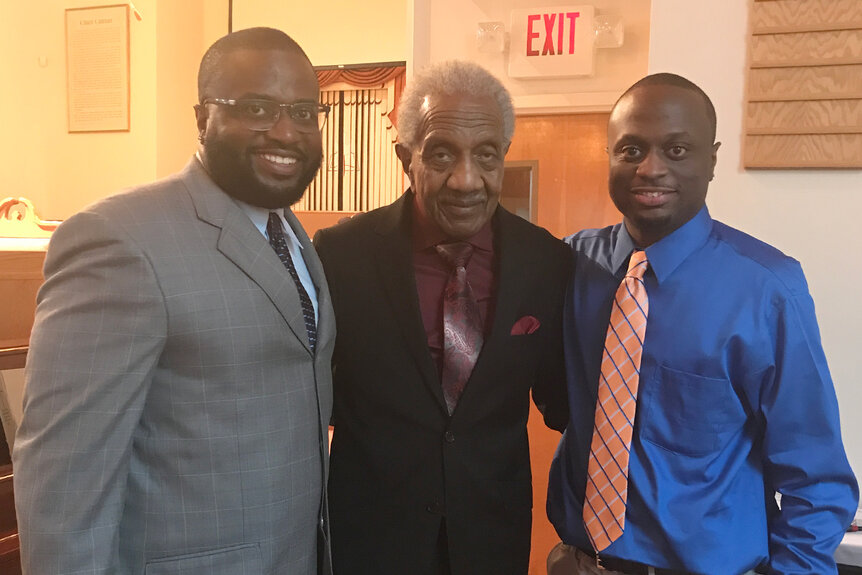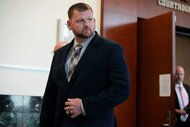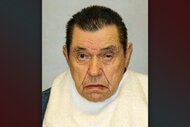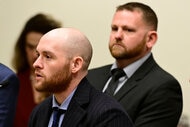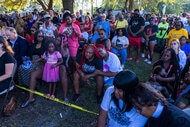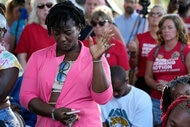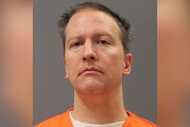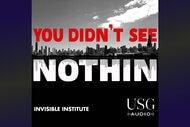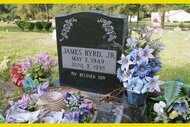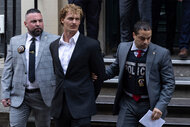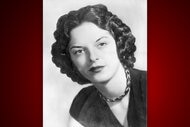Create a free profile to get unlimited access to exclusive videos, breaking news, sweepstakes, and more!
The Grandsons Of Civil Rights Hero Frederick D. Reese Want America To Remember His Contributions
The grandsons of civil rights legend Frederick D. Reese are on a mission to share and continue his legacy.
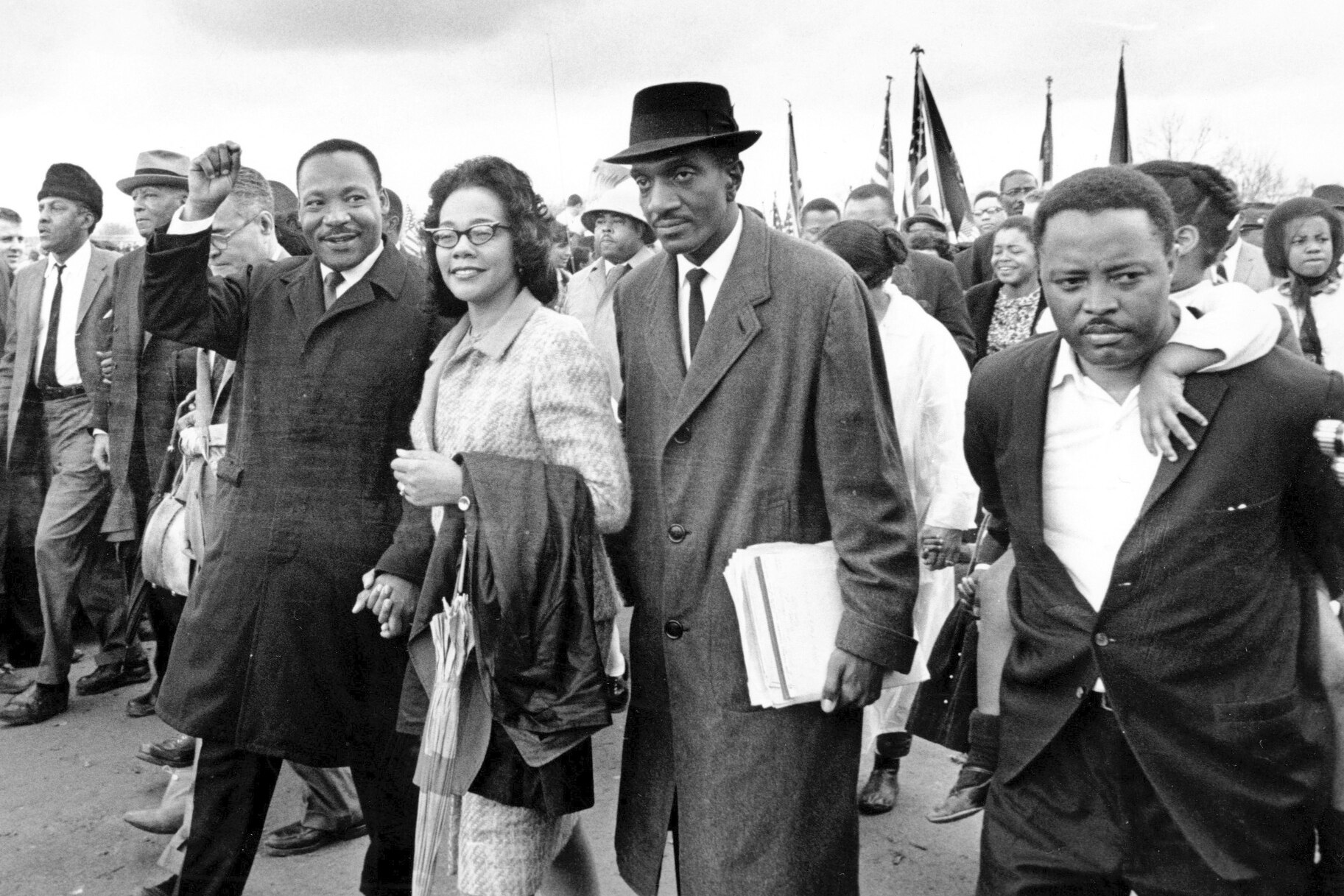
The Rev. Dr. Frederick B. Reese is largely an unsung civil rights hero, but his grandsons are determined to change that.
“I want my grandfather to get the credit he deserves because he is just so overlooked, Marvin Reese Jr. told Oxygen.com. “That’s just the long and short of it.”
His brother, Alan, echoes those sentiments, noting that many others stand on his grandfather’s shoulders.
“Barack Obama would not have been president of the United States of America was it not for the leadership of Frederick D. Reese.”
Reese’s accomplishments are numerous and historic. The longtime educator and pastor was one of the architects of the fight to give African Americans the right to vote, centering his campaign in Selma, Alabama.
As a member of the so-called “Courageous Eight,” he defied an injunction banning marches or meetings in Selma or Dallas County. They were all members of the Dallas County Voters League Steering Committee. As president of the Selma City Teachers Association, he organized the first teachers march for voting rights.
Dr. Martin Luther King Jr. sent Reese a telegram congratulating him on the success of the march on Jan. 11, 1964. A copy of the telegram is included in Reese’s autobiography "Selma’s Self-Sacrifice." It was published nearly a year after his death in 2018 at the age of 88.
“I am strengthened in heart and in my work by your demonstration of yesterday. The protest of Dallas County teachers carried us miles down the road in the protest of injustice and at the same time up the road to the Great Society,” King wrote. “Most important, however, is the fact that you destroyed the often made charge that teachers as a professional group are afraid to fight injustice. People all over the country are today standing on their feet applauding your action.”
Reese was among those brutally beaten and gassed on “Bloody Sunday.” He invited King Jr. to Selma and was booed, according to his grandsons. Even after the Voting Rights Act of 1965 was passed, Reese was still pushing to improve the lives of African Americans in Selma.
Alan Reese, 37, became fully aware of his grandfather’s achievements as a fifth-grader at Cedar Grove Elementary School in Ellenwood, Georgia. He recognized his grandfather standing next to King in a history book. The elder Reese was not named in the photo, and his classmates and teacher did not believe that was his grandfather.
Eventually, his grandfather, still living in Selma, made plans to visit the school.
“The class went crazy,” Alan said. “When I see my classmates, they still talk about that day at school.”
For Marvin, 39, the realization of his grandfather’s stature in the civil rights movement came much later, but there were signs along the way.
He remembers accompanying his grandfather to KFC to buy a family meal and the elder Reese reaching in his pocket to pay and the manager said, “No, no Reverend Reese. I got this.”
He also recalls a trip to a civil rights museum with his family and a white woman shaking his grandfather’s hand with tears streaming down her face.
“I would say every year I get a little more proud because not only are we finding out new things, but just to have the same last name,” Marvin said. “I must say, I stick my chest out to say that my grandfather is one of the main reasons that African Americans have the right to vote.”
The brothers’ first step to preserving and sharing their grandfathers’ legacy was getting him to write the autobiography. The grandsons said their grandfather would dismiss their pleas to tell his story with, “God knows what I did.”
“He was about the movement and not about the celebrity,” Alan said. “He was all about the cause. He was about getting things done and going on to the next assignment.”
But Alan said he had many conversations with his grandfather about his role in the movement.
“I used to tell my grandfather; I wish I could get in your body for 24 hours. I’d call CNN, Fox News and all the news stations and tell them what really happened,” Alan said.
In 2015, he was having a conversation with his grandfather, again, about his legacy.
“He said right then. You are in charge of my legacy from this point on. And whatever you see fit to do, you do it.”
In "Selma’s Self-Sacrifice," Reese shares what he told his congregation on March 7, 1965 on what was to be the march from Selma to Montgomery, which became known as “Bloody Sunday,” and eventually led to the passage of the Voting Rights Act of 1965.
“As I stand before you, I believe that marching for the injustice of all people is vital. I cannot stand by and witness large numbers of citizens being turned away at the courthouse and discriminated against, simply due to the color of their skin.”
Later, he writes about the horrific events of that day.
“There were more cheers and handclapping from those on the sidelines, who were delighted in watching us being beaten, trampled up and gassed. The hate became contagious, because the groups who were previously watching in silence had now joined the others in spurting rants of racial vulgarities and obscene hand gestures.”
The forward to "Selma’s Self-Sacrifice" notes the irony of what took place on that day.
“As a schoolboy, I went to the dedication of the Edmund Pettus Bridge fascinated by the fanfare of it all; now, on this same bridge I was brutally attacked as a citizen exercising rights I learned as a student.”
Decades after “Bloody Sunday,” Reese was still striving to improve the lives of African Americans.
He served on the Selma City Council and in 1984 became the first Black man to run for mayor of Selma, but was defeated. In the '80s, he organized a protest against Walmart on July 4th to push the discount chain to hire more Black managers. Their demands were met.
More than a year ago, the brothers started providing personally guided tours across Selma, highlighting the city’s history and their grandfather’s role in changing it. They're called the FD Reese Historical Tours. They also have The Lineage Podcast, a clothing line and a mascot, Mr. Voting Rights, set to make his debut this month. He’ll visit elementary schools. There’s also the Frederick D. Reese Foundation, which not only educates the community about his legacy, but also provides scholarships.
They also hoped to get a school named after their grandfather and are working on a documentary, according to NBC News.
Marvin and Alan are not the only ones who believe that it’s important for the nation to remember the role of civil rights leaders like Reese.
"It’s important that we find ways to raise up the story of Dr. Reese and others and convey a sense that their personal stories are the stories of the history of the civil rights movement, and what they risked,” Adam Green, an associate professor of American history at the University of Chicago, told NBC News. “And what they put on the line is something that needs to be commemorated in the same sort of way that we commemorate members of the military and first responders today within the United States, because they built and defended the country, as surely as anybody who took up arms does.”
And his grandsons note that his service to the movement came with a heavy toll.
“My grandfather was [Colin] Kaepernick before Kaepernick,” Alan said. “He was fired for leading that march. For three years, he lost his job.”
He also faced false embezzlement charges but was exonerated.
In an open letter, the final chapter of his autobiography written with Kathy M. Walters, Reese wrote: “I believe my accomplishments have been in direct alignment with my season, my time, and my purpose. I thank God for my ability to hold steadfast to my faith. I know that His grace, protection, and mercy have allowed me to be a beacon of hope and a vessel of change for my beloved Selma.”
